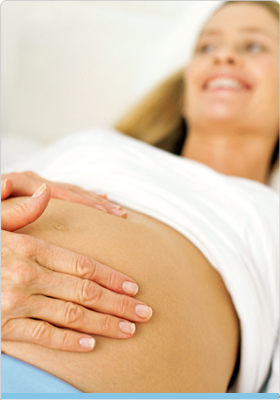 |
 |
| |
What's happening to your baby?
Your baby is moving a lot now. The fingers can curl, so your baby can grasp things and make a fist, and may even suck its fingers and thumbs.
The bones in the ears have hardened, improving your baby’s hearing and it’ll be fascinated by your voice and comforted by the sound of your heartbeat. And your baby may have started hiccupping by now so you might feel those jerky movements.
The skin is still thin, but will turn into the soft baby skin we all know and love by the time they’re born. Your baby is also starting to develop sweat glands and body hair. |
|
|
|
What's happening to you?
As you've probably discovered, you're offered a huge range of tests while you are pregnant. These are all designed to make sure you and your baby are thriving.
Firstly there are the routine checks your midwife does at each antenatal visit.
Your midwife will also offer you screening tests for genetic conditions, such as Down's Syndrome. Depending on where you live, this may either be a scan plus a blood test (the combined test), or a blood test carried out at about 16 weeks (the triple or quadruple test). Your midwife will give you lots of information about these tests so you understand them fully.
If screening tests show your baby has a higher risk of having Down's Syndrome, or any other genetic condition, you will be given more information and maybe offered further testing, such as amniocentesis or chorionic villus sampling (CVS). These tests involve taking samples of amniotic fluid or tissue from your womb and, unlike screening tests, tell for certain whether or not your baby is affected. |
|
 |
|
|
|
"Deciding whether or not to test for Down's Syndrome isn't always easy. This is especially true with amniocentesis and CVS, which both carry a small risk of miscarriage. It's a big decision and a very personal one, but your midwife is there to support you. Make sure you have all the information you need, talk it through with your partner and make the choice that's right for you."
Bev Rolls, Midwife |
|
|
 |
|
| We answer hundreds of questions a week from parents. For free support and advice, get in touch via our new Live Chat service, call or email.
|
|
|
 |
|
|
Come and get to know us a little better. |
|
|
| You'll soon be able to feel your baby moving. For experienced mums this ‘quickening’, as it’s known, happens around 16 weeks. For first-time mums it’s a little later – around 20 weeks. |
|
|
| Tips and advice about travelling when you're pregnant. |
|
|
|
|
|
All the best,
The SMA Baby Club |
|
|
|
 |
 |
 |
 |
 |
 |
|
Please do not reply to this email, as the mailbox is unmanned. For any help or assistance please contact our Careline team.
ZTC1094j/08/15
Nestlé UK Ltd & Nestlé (Ireland) Ltd ®Reg. Trademark |
|
 |
|